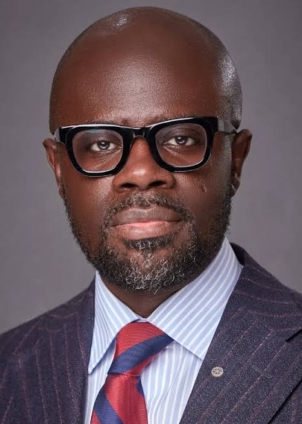The Dean of UPSA Law School, Prof. Kofi Abotsi, has highlighted the challenges of holding political actors accountable for their promises to citizens.
According to the Dean, politicians often make grand promises to win votes but fail to honour them once in power because no one holds them accountable.
In an interview with Joy FM’s Super Morning Show on Tuesday, Prof. Abotsi explained that, “Today we govern through institutions, and the institutional interface is the only way to achieve success if we truly desire it.
"However, it is not easy to get political actors to make commitment by which they will stand that’s the total of the matter," he added.
Mr Abotsi noted that it is impractical for all Ghanaians to individually demand accountability from politicians. Instead, he emphasised the role of institutional frameworks.
He identified two types of institutions: the “hard” institutional surface, which includes Parliament, the Judiciary, the Auditor General, and other bodies established by the constitution to ensure accountability.
While Parliament can hold political actors accountable for official promises and actions, it struggles to enforce pre-election promises made on campaign platforms.
He asserted that the media plays a crucial role in holding politicians accountable before and after elections.
The media's power lies in its ability to remind politicians of their promises and check if they have fulfilled them using specific benchmarks. This role has seen successes and failures.
On the one hand, the media has helped focus public attention on key issues, encouraging politicians to be more careful with their promises.
On the other hand, the media is often fragmented and politically influenced, leading to a distorted public conversation.
Mr Abotsi stressed that while the media can guide Ghanaians on the path of accountability, its effectiveness is hampered by political infiltration, which dilutes and convolutes public discourse.
He pointed out that state institutions, particularly Parliament, have largely failed to hold the government accountable. The majority party in Parliament often views itself as an extension of the executive, weakening Parliament's role across successive regimes.
Read also : Kwame Sowu: The Challenge of Political Promises and the Complex Realities of Governance
Latest Stories
-
Judge delays Trump sentencing for a third time
16 mins -
2024 WAFCON: Ghana drawn against defending champions South Africa in Group C
45 mins -
Photos from DW-JoyNews street debate on ‘galamsey’
2 hours -
Mimmy Yeboah: Blending heritage with global sophistication, confidence redefined through couture
2 hours -
Akufo-Addo commissions 97-km Tema-Mpakadan railway line
2 hours -
Majority requests recall of Parliament
2 hours -
Kanzlsperger and Professor Quartey support WAFA with medical Donation
3 hours -
Gideon Boako donates 10 industrial sewing machines to Yamfo Technical Institute
3 hours -
‘Golden Boy’ Abdul Karim Razak honored at WAFU-B general assembly
3 hours -
Buipewura Jinapor secures Vice Presidential position in National House of Chiefs with record votes
3 hours -
2024 election: I want results to come out like ‘milk and honey’ – Toobu
3 hours -
Ghana’s Henry Bukari hands over chairmanship of ECOWAS Brown Card Council of Bureaux
3 hours -
Residents of Dome-Kwabenya on edge ahead of December elections
4 hours -
Moffy drops new single ‘Wo’, blending culture and modernity
4 hours -
Don’t bring soldiers to polling stations – Martin Kpebu
4 hours

